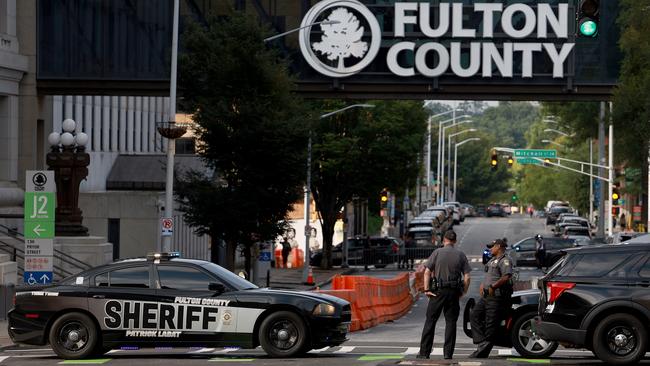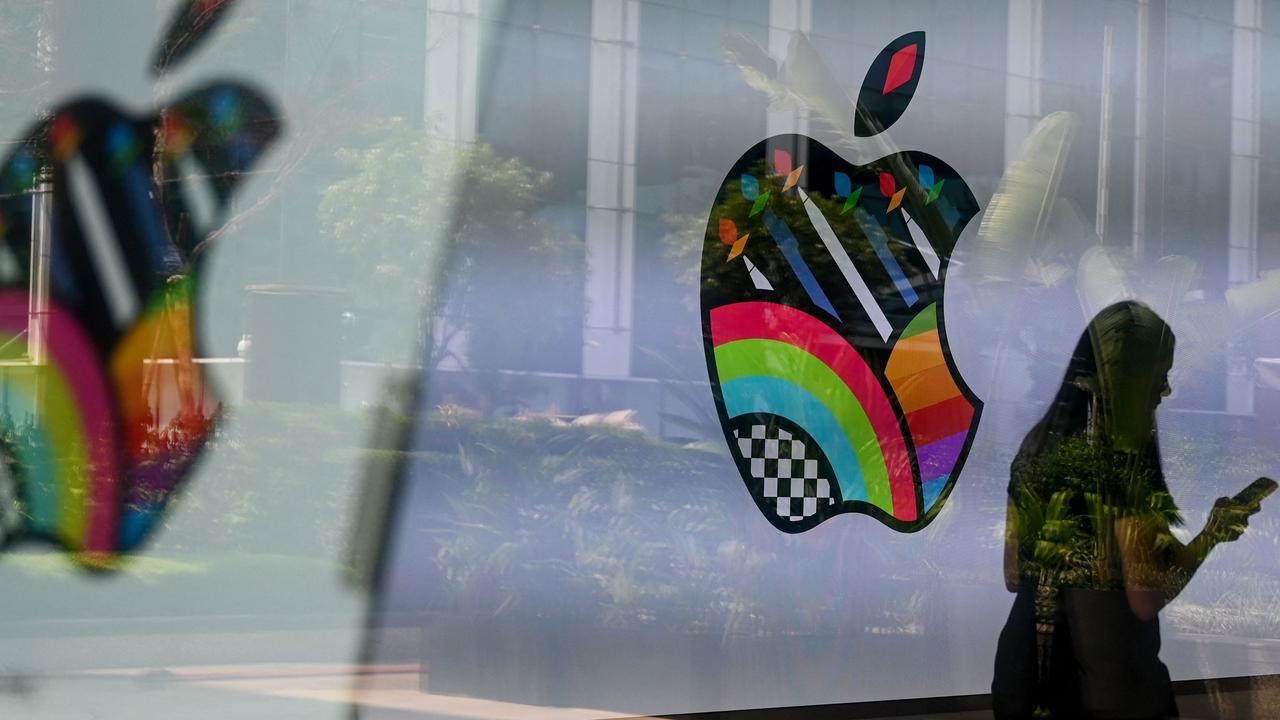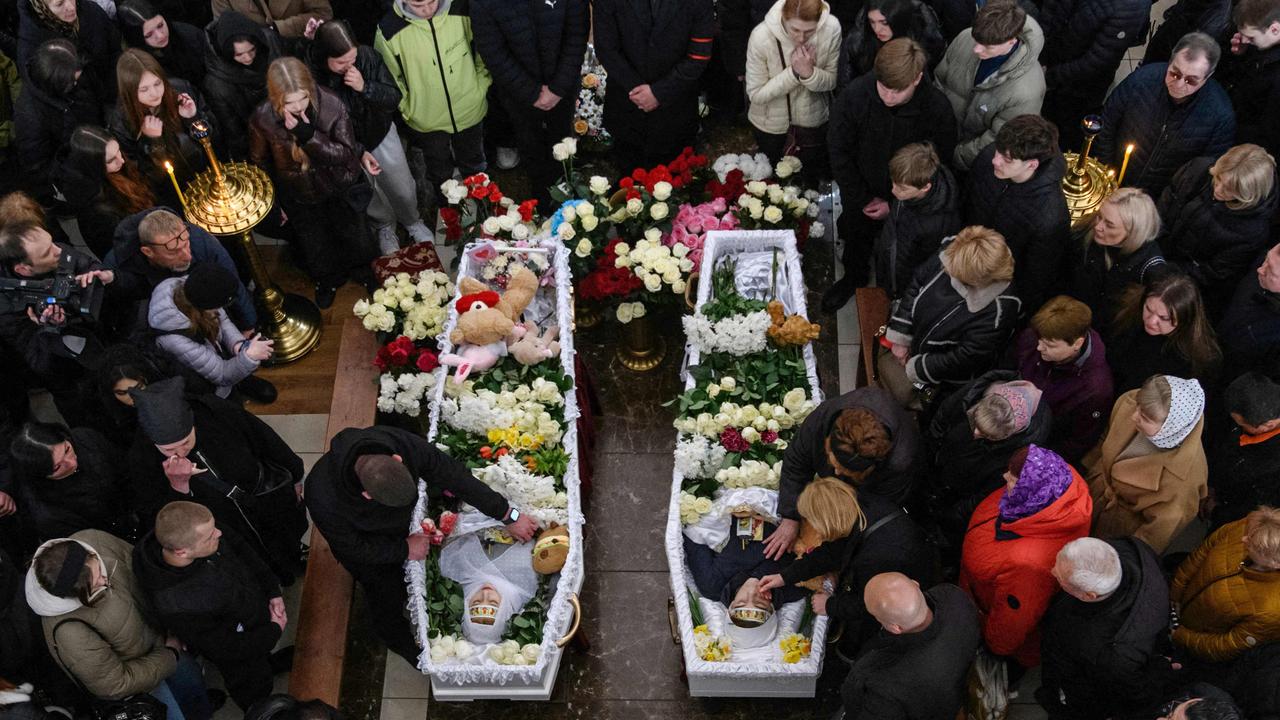Donald Trump faces threat of racketeering charges in Georgia
Fulton County district attorney expected to use a law meant to take down mafia bosses.

Former US president Donald Trump is bracing for a potential fourth criminal indictment that is likely to come with a legal twist he hasn’t faced yet: sprawling racketeering charges in Georgia.
Fulton County District Attorney Fani Willis, who made a name for herself bringing such charges, has been tight-lipped about what case she would make against Mr Trump but lawyers who have followed the investigation, including some who have worked with Ms Willis, expect her to invoke Georgia’s RICO Act, modelled after the federal Racketeer Influenced and Corrupt Organisations Act of 1970.
“Signs are certainly pointing in that direction,” said Anthony Michael Kreis, a law professor at Georgia State University.
Within the next two weeks, a grand jury is expected to consider whether criminal charges are appropriate for Mr Trump and GOP allies who sought to overturn his 2020 election loss in Georgia.
Last week, he was indicted on federal criminal charges, accused of trying to subvert the will of American voters after he lost the 2020 election. Events in Georgia figured prominently in the federal indictment. Mr Trump faces a different federal case in Florida over his handling of classified documents. He has pleaded not guilty in Washington and Florida to all federal charges and in a separate case in New York. He has stated repeatedly that he did nothing wrong in the Georgia election.
Georgia’s RICO law is a powerful tool for Ms Willis, who has skilfully applied it in the past. The federal statute was enacted in 1970 to help take down the mafia. Before RICO, it was difficult for prosecutors to connect mob bosses with their underlings who carried out crimes. More than 30 states have adopted RICO statutes based on the federal law.
Under both the federal and Georgia’s RICO law, if prosecutors show there is an organisation of people who commit crimes together on a recurring basis, then members can be prosecuted for crimes the group committed. Back in 2021, when Ms Willis first launched her election-interference investigation, she retained one of Georgia’s leading experts on racketeering charges, John Floyd, to advise on the probe, which he still does.
Mr Floyd worked on the Atlanta school-cheating case, in which Ms Willis was a key prosecutor. That case involved a group of public school administrators and teachers conspiring to inflate test scores of students to improve the ranking of schools and the district. The case led to 11 convictions in 2015 – all under the state RICO law.
Clint Rucker, a former Fulton County prosecutor who worked closely with Ms Willis on the case, said the team was sent to a hotel in Macon for a week to study RICO. “It was a big deal because it wasn’t a gang case,” said Mr Rucker, who is now in private practice.
Mr Rucker said he expected Ms Willis would use RICO in the 2020 election case since she had already used it with success.
Ms Willis in May last year announced a 56-count RICO indictment of 27 people associated with an alleged criminal organisation called YSL, a violent street gang. The defendants include Jeffery Williams, better known as Young Thug, a prominent rapper. He has pleaded not guilty and is awaiting trial in Fulton County’s jail.
The RICO statute lends itself well to the Georgia investigation because Trump allies around the country tried a range of tactics to keep him in power. “It gives prosecutors lots of choices as far as venue goes, and it leads to very long, complicated trials that wear down defence attorneys,” said Andrew Fleischman, a defence lawyer in Atlanta.
Critics of RICO said it allows the government join defendants with little connection to each other into a single prosecution that, absent RICO, would be too disjointed to proceed in the same trial under the rules of criminal procedure and evidence.
Ms Willis has said she is a fan of Georgia’s RICO Act in part because it allows prosecutors to connect more dots for the jury.
“I think jurors are very, very intelligent,” she said last year about the gang indictment. “They want to know what happened. They want to make an accurate decision about someone’s life. And so RICO is a tool that allows a prosecutor’s office and law enforcement to tell the whole story.”
Professor Kreis noted that Ms Willis has also investigated an effort by Trump allies to access sensitive voting equipment in Coffee County, 300km away. RICO lets her to make it part of her case.
Defence lawyers have been critical of the state’s RICO law, saying it allows prosecutors to tar defendants by association.
“A lot of folks in Georgia have been critical of its use,” Professor Kreis said of the state’s RICO law. “It’s ripe for abuse given how open-ended it is relative to the federal law.” Georgia’s RICO law in some respects is broader than the federal one. For example, the federal RICO law enumerates a list of 35 crimes, or “predicate offenses” that can be used to show a pattern of racketeering activity. Georgia’s RICO statute adds more than 30 additional crimes that qualify. The Georgia statute, unlike the federal law, specifically includes making false statements as a potential racketeering crime, said Morgan Cloud, a law professor at Emory University.
“If there are indictments in Georgia, and they include racketeering, then I expect that false statements will be an important part of the case,” Professor Cloud said. “Willis has been very creative and effective at using the RICO statute compared to any prosecutor anywhere.”
The Wall Street Journal




To join the conversation, please log in. Don't have an account? Register
Join the conversation, you are commenting as Logout